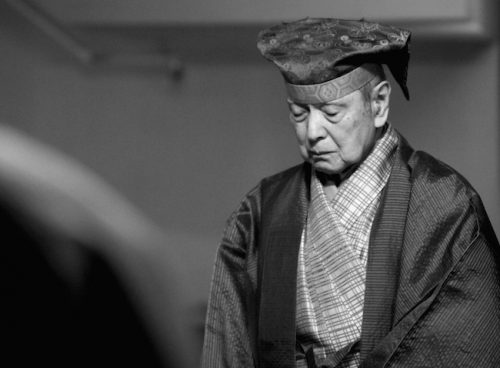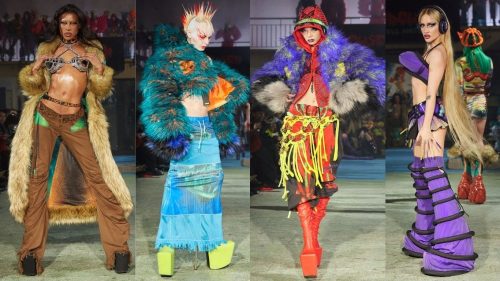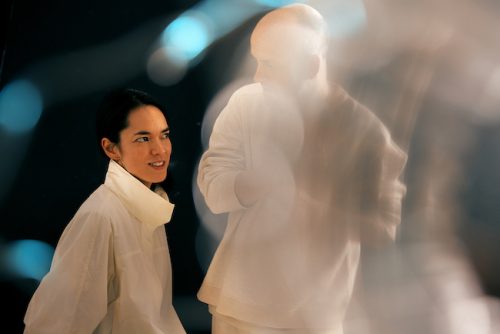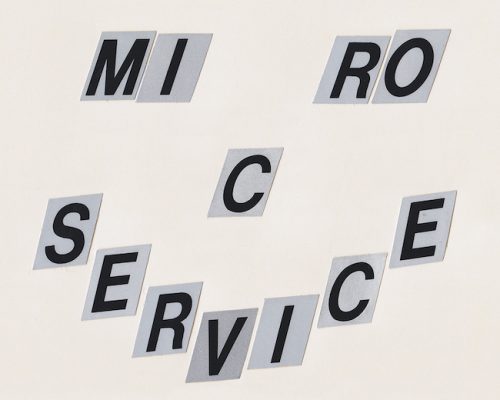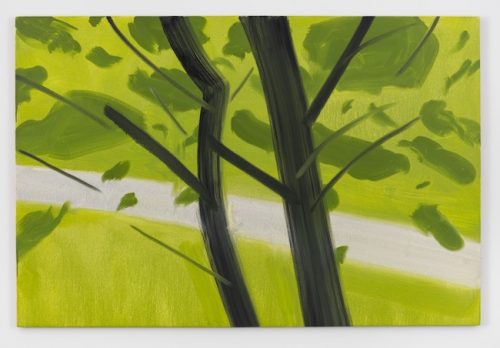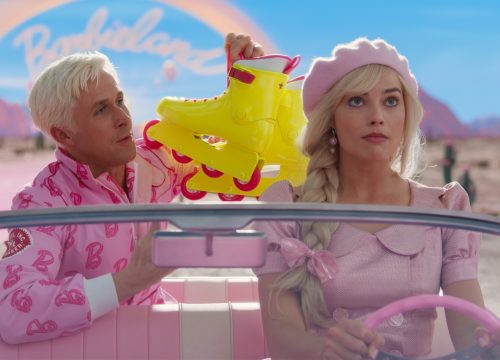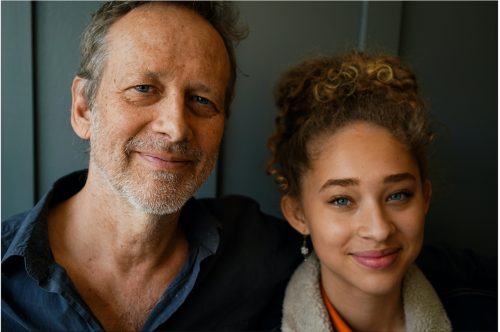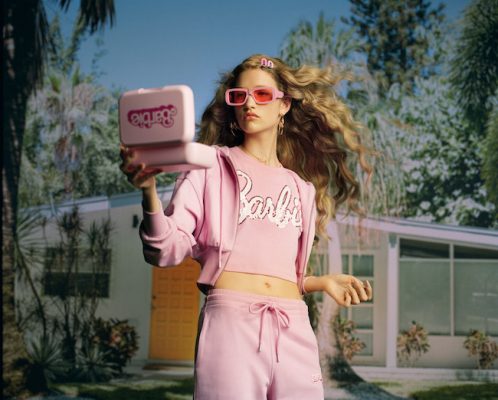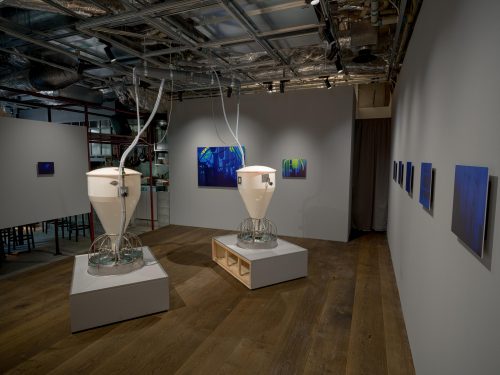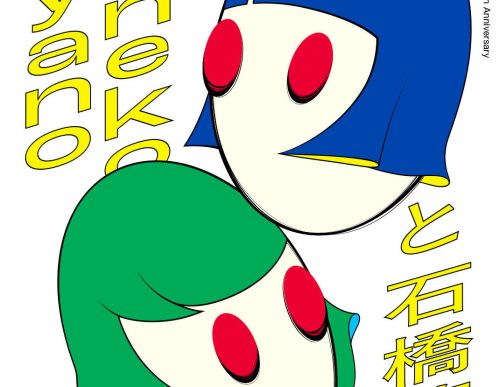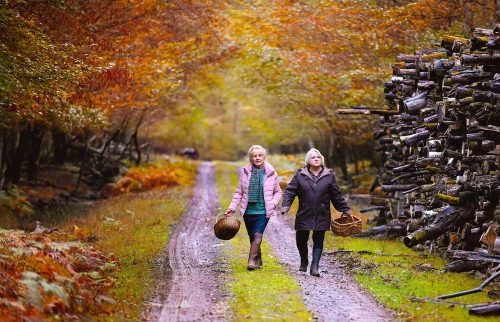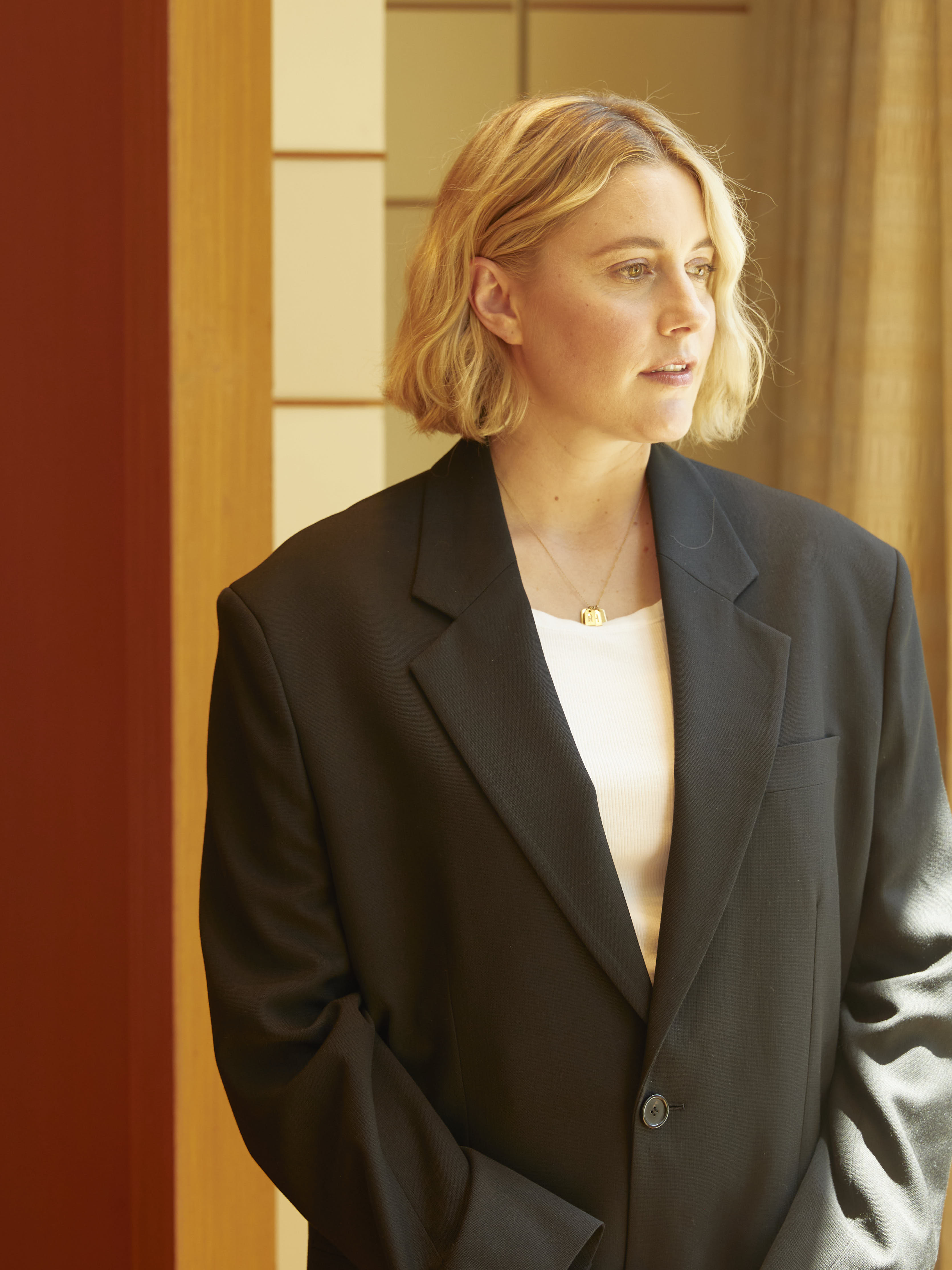
――I had a lot of fun watching the film and I was moved by the message that we should embrace who we are. Was it a challenge to weave that kind of message and balance it with the flamboyancy of Barbie Land?
Greta Gerwig: I’m so glad the film touched you in that way. There was a way in which I wanted to find what the utter seriousness and importance of childhood play is and how it makes us back. And I think in some ways, Barbie seems like the most unlikely site for depths. So it seems like the place that I wanted to give the most depth to because Barbie is a plastic doll. And it seems like if I can figure out how to talk about being human with a plastic doll, that would be worth trying to do. When I think of kids playing and how seriously they take it and how much it means to them, I felt like I had to treat this movie which was going to be fun and funny and beautiful but also to take it really seriously. That was inspired by the way children play.
――Growing up, I never really identified myself with the blonde, blue-eyed Barbie that I had, but it’s nice how Mattel has wide variety of dolls now. And I think many people in Japan will be empowered by this film with various Barbies and different characters. What were you particular about to convey your message through these characters? What did you look for when you were casting the film?
Greta Gerwig: First of all, where Barbie has come to since 1959, it’s wonderful to see how she’s expanded, that she’s changed. She has different body types now. She’s all these different women and that you can really see yourself in this world is so important. When I was casting the movie, I wanted to make sure we were reflecting that. I also wanted to make sure that everyone we cast to be fun. So they’re all so funny, they’re so talented, they’re such good dancers. But I wanted them to be sincere, I wanted them to have that kind of wholeheartedness when they were doing it, that the humor was coming from taking it seriously not making fun of it. So everyone I looked for when I was casting was, I wanted it to be this kind of unique spark of very funny and very heartfelt because that was the needle I was trying to thread. And I got such an incredible group of people. It was really like a company of actors in a way that I’ve never totally experienced. Because usually film casts are smaller, just by necessity. And this felt like we were in a Broadway musical and it was just marvelous.
Also, I cast every dancer because I wanted the whole Barbie Land to be completely populated by dancers. Because even when they’re not actually dancing, I find that with dancers hold themselves differently than other people, they are very present in their bodies. So I wanted even movements like walking down the street or sending yourself on the beach to be choreographed. So they did these little vignettes of choreography because it created this sort of heightened world. But it was a chance to cast all these incredible individuals who are dancers, and who were able to really reflect something that felt hopeful.


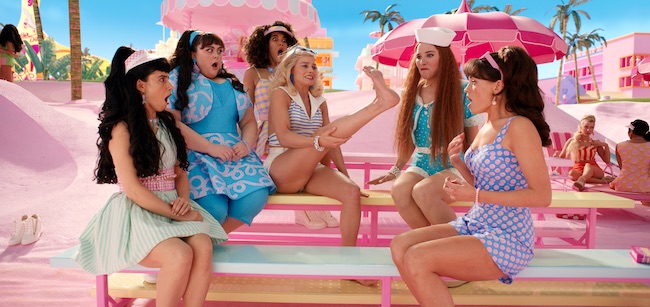
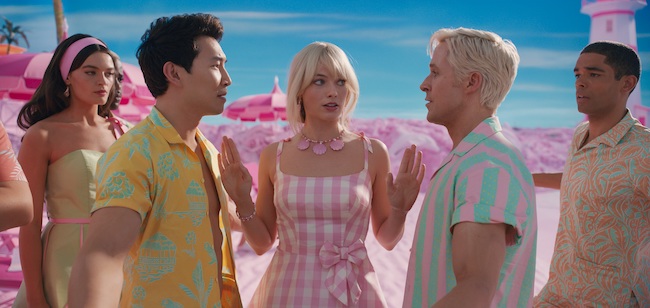
――In the film, the situation Barbie and Ken are in reverses sometimes. Did you bring in your own emotional experiences into the story in any way?
Greta Gerwig: Definitely. I brought in sort of in the base was my experience as a child playing with toys, playing with dolls, and the memory I had of that. I also had this element where my mom didn’t like Barbie that much, so I had the argument against Barbie in my head. Ever since I remember what Barbie was, I knew the reasons I shouldn’t necessarily like Barbie. So all of that went into it. And then for me, now as an adult, I think looking back on that and trying to reconcile all of that went into the movie. And as far as Ken is concerned, he just really seemed like a forgotten man [laughs.] Ryan Gosling and I mutually decided that he was a character whose story needed to be told.
――Alexandre Desplat once said that what’s great about “Little Women” [2019] is the modern interpretation of the classic. In “Barbie,” neither Barbie nor Gloria need romance or men, and the heroine’s subjectivity and self-expression are depicted throughout the film. Is it important for you to tell stories like this?
Greta Gerwig: I think that I’m always interested in the question of how people become more human and more themselves. And I think at many stages in life that requires some shedding of an earlier idea that you were certain was central to your identity. I think that that can happen at eight years old, 18 or 80, and it just kind of keeps happening throughout life. And I’m always interested in that moment when people bump up against the edge of where some version of their identity has taken them. So I think it’s just a compelling moment to me, what do you do when the bottom falls out.
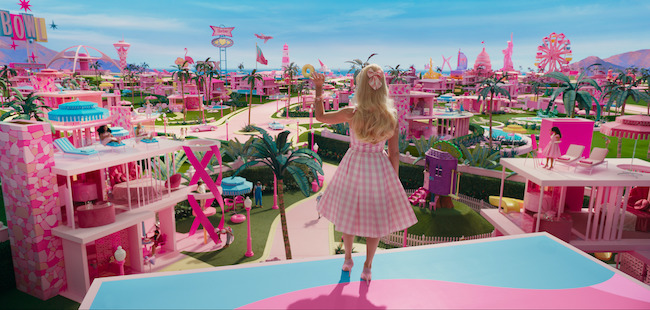
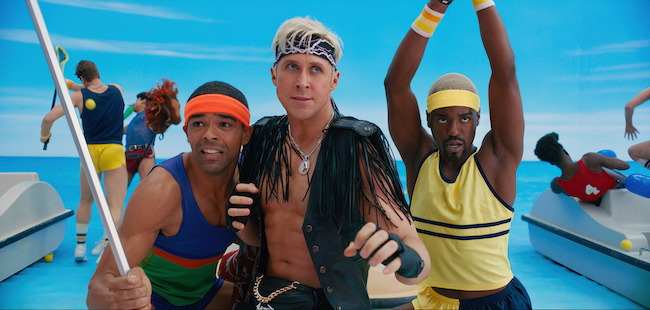
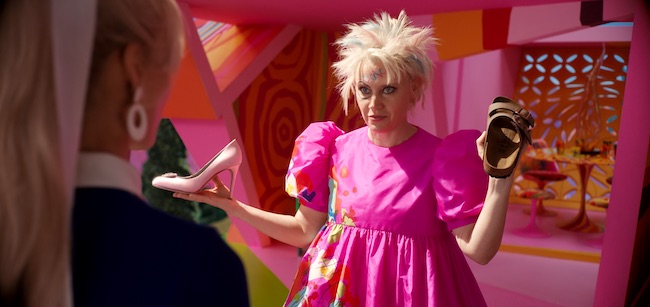

――This movie opens with an homage to “2001: A Space Odyssey,” and it was interesting how Barbie and Ken are depicted as if they are Eve and Adam. In “Lady Bird,” you quoted the words of Simone Weil. Could you tell us a little bit about your films and theological themes?
Greta Gerwig: Oh, you nailed it. I think theological themes are always present in my work. I went to Catholic high school, so I got a fair amount of that. Also, I was raised going to church so I have this sort of a background for everything. I’ve been very moved by certain religious thinkers and the way they view the world and kind of the profound intelligence that I don’t have but I continue to seek out. For me, these stories that I grew up with and these traditions I grew up with inform all the stories I tell, because I’m always looking for the essence of the story, and in a lot of stories, there’s a sense that it’s like psychology before psychology. And I think that that taps into something very deep. And yes, I enjoy reading theologians, I do. Everybody’s got a hobby, that one is mine. I don’t have a bowling league, but I like to read theology [laughs.]
――Lastly, what is your source of energy, like Barbie is to Gloria?
Greta Gerwig: My children. I have a stepson who is 13 and I have two little ones, one is five months and one is four years old. And I think the littlest guy… Well that’s just recharging, because to hold a tiny baby is pretty wonderful. So after all this stuff and then going home and getting to touch this little head is very nice. I think in some ways, a lot of the movies I make are about childhood in some deep way. And I think having children of my own, it even connects me more to that.
text nao machida

